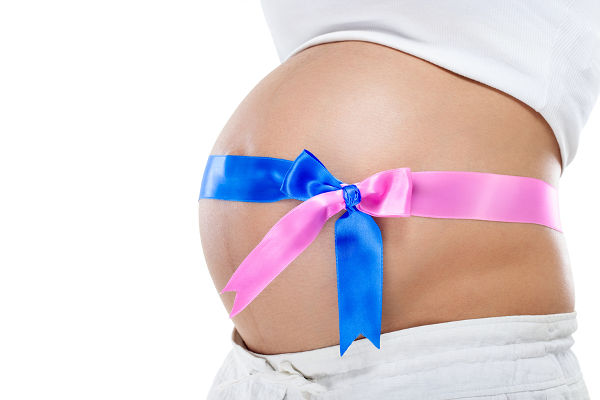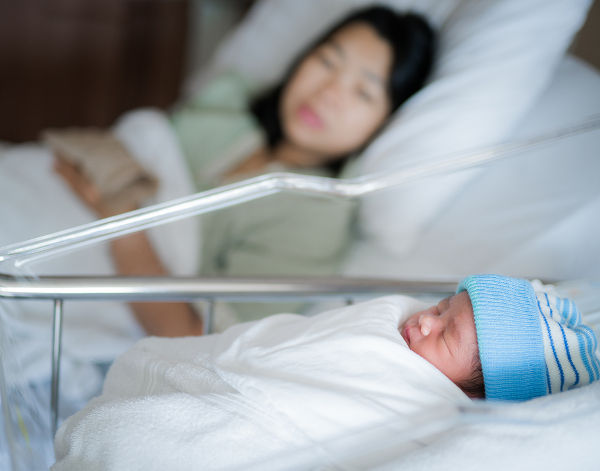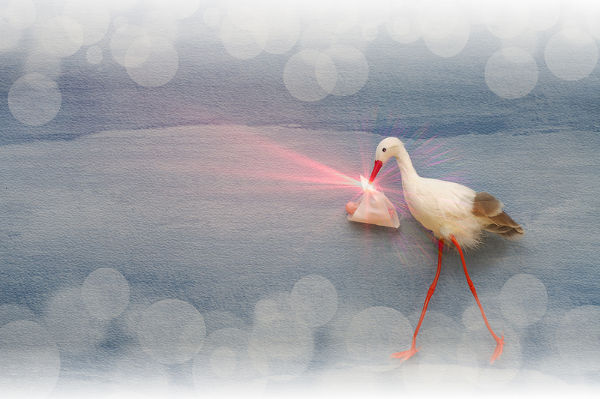Here in the UK, we have a few traditions for pregnancy and labour that might seem a little strange to our international neighbours, but are perfectly normal here. The idea of a baby shower before the birth for instance, would seem incredibly unlucky in other countries where they believe that evil spirits may try and harm the baby. Furthermore, our old tradition of dangling a ring over the mother’s bump to determine a baby’s sex based on how the ring swings is still alive and well amongst the over 50 generation, even with all our modern scanning technology. This might seem strange in other cultures who have their own rituals for determining a baby’s sex.
Once a woman has given birth in the UK, more often than not she is sent home and basically left to it, with very minor support from midwives and health visiting teams. As we explore below, women in many other countries would be appalled by this.
Identifying The Baby’s Sex

Like our old swinging a ring above the baby bump trick, cultures around the world have developed their own unique ways of guessing whether the baby will be a boy, or a girl.
- In China, they use astrology, by using the mother’s age and the baby’s due date to create a date on the Chinese lunar calendar. Where the date falls is supposed to indicate the baby’s sex.
- In some Caribbean countries, a spoon and a knife are placed under different cushions and then the mother is invited to choose one to sit on. If she sits on the spoon then the child is a girl, and if she sits on the knife then she’s having a boy.
- In many parts of India, it’s said that if the mother’s nose swells up during pregnancy then she’s sure to be having a girl.
Protecting A Baby From Evil Spirits

In a number of countries around the world, there are powerful beliefs about the role spirits and demons have to play in our lives. Many cultures have rituals that are said to help protect a baby from these evil and mischievous beings.
- In Togo, West Africa, women are encouraged to stay silent during labour in order to avoid attracting the attention of evil spirits.
- In Bulgaria, people “bless” a baby by pretending to spit on it and uttering the words “May chickens poop on you”. There are strong beliefs in the power of the devil in Bulgaria and people believe that it’s important not to make the devil jealous of the new baby. This unusual action is therefore designed to make it seem to the devil that the baby is worthless, with the hope that the devil will leave the baby alone.
- In Vietnam and in parts of Thailand and China, parents will call their baby horrible names, such as “ugly”. This is to prevent drawing the attention of evil spirits to the baby’s cuteness, and therefore prevent the spirits from harming or stealing the baby. In some parts of Vietnam, a formal name will not be used until the child is much older.
- In Bangladesh, women are often confined to their homes for 40 days after giving birth to protect themselves and the baby from evil spirits. As you can see below, the idea of post-natal confinement is not unique to Bangladeshi women.
Post-Natal Confinement

Here in the UK, most women go out of the house within a week or so after giving birth. Some take more time, others take less, but for the vast majority of UK women, the idea of staying in one place for a month or more following the birth would seem a pretty strange concept. However, it’s worth noting that the UK has one of the worst breast-feeding rates in the world, and the lack of post-natal care is undoubtedly a factor.
- In China, and in other South Asian countries, women stay indoors for 30-40 days following the birth. The belief is that the mother needs to restore balance to her body and take time to recover. There are a number of practices during confinement that vary from region to region. These include not washing their hair, not reading books, not being exposed to wind, and not eating certain foods whilst eating plenty of other foods that are believed to have healing properties.
- Over in South Korea, the idea of confinement is still very popular, but modern technology and comforts have a big role to play, especially for the wealthy. Here, following the birth of their babies, women check into a Joriwon. This is essentially a holiday resort for post-natal women. During their stay here, women have access to nurses, chefs, nutritionists, massage therapists, and yoga classes. All laundry is taken care of and babies are cared for by staff in between feeds.
- In Japan, it’s traditional for the new mother to go to her mother’s house and stay in bed there for 21 days whilst Grandma helps to look after the baby.
- In South America, many countries have the tradition of La Cuarentena, where new mums stay home for 40 days and do nothing except rest and breast-feed.
Celebrating The Arrival Of The Baby

Here in the UK, our main post-natal tradition is a Christening service, where a baby is sprinkled with holy water and dedicated to God. For practicing Christians, this is an important moment in their new baby’s life. For others, this is a traditional way to welcome a new baby into the world and a good excuse to have a party. Around the world, the arrival of the new baby is marked in a number of different ways.
- In the Netherlands, new parents often put a stuffed stork in the window to announce the arrival of their baby. A special type of cracker covered in aniseed flavoured sprinkles is given to visitors who come to see the new baby.
- In Turkey, a special cinnamon flavoured drink, Lohusa Serbeti, is given to women following the birth, and to any visitors who come to see the baby.
- In a number of countries, including Bali and New Zealand, the placenta is buried and a tree planted above it. There are various reasons for this, including the belief that the placenta is the child’s guardian angel and should be treated with respect.
- In Nigeria, it is traditional that the baby’s grandmother be the one to give the baby his or her first bath. This is to demonstrate the idea that the mother is not alone in raising the child, and that she has a family around her who will support her.
- In Islam, the tradition of Aqiqah dictates that an animal should be sacrificed as a gesture of thanks to Allah for the safe arrival of the baby. The sacrifice should take place on either the 7th, 14th, or 21st day following the child’s birth, and during this ceremony, the child’s hair is typically shaved and the name is formally announced. In many countries, Muslim parents pay for an organisation to sacrifice an animal on their behalf, with the meat donated to the poor.




